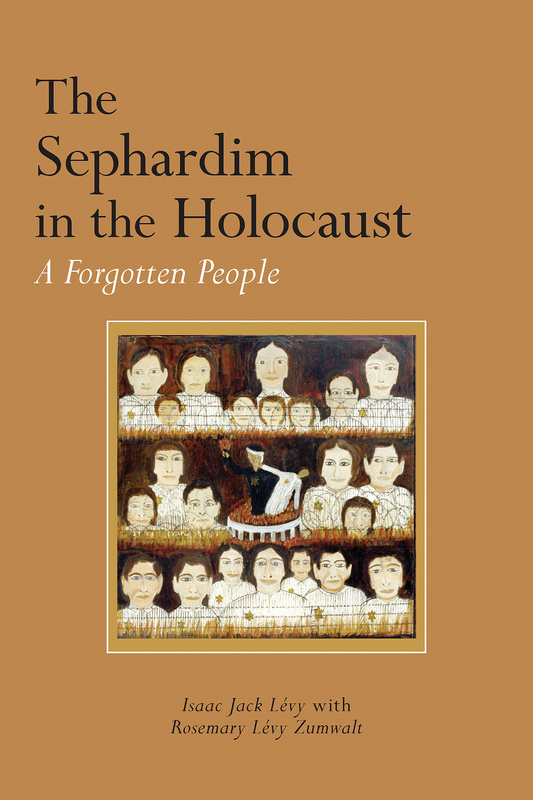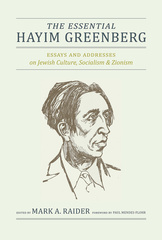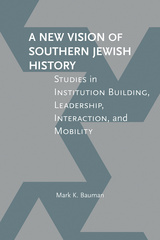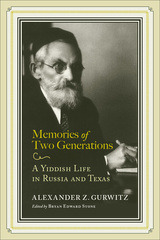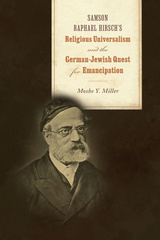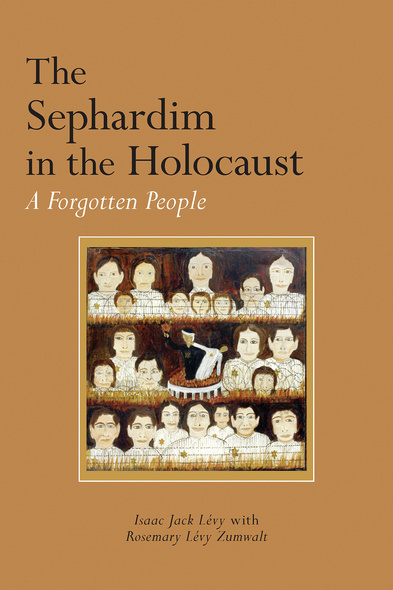
The Sephardim in the Holocaust
A Forgotten People
The Sephardim suffered devastation during the Holocaust, but this facet of history is poorly documented. What literature exists on the Sephardim in the Holocaust focuses on specific countries, such as Yugoslavia and Greece, or on specific cities, such as Salonika, and many of these works are not available in English.
The Sephardim in the Holocaust: A Forgotten People embraces the Sephardim of all the countries shattered by the Holocaust and pays tribute to the memory of the more than 160,000 Sephardim who perished. Isaac Jack Lévy and Rosemary Lévy Zumwalt draw on a wealth of archival sources, family history (Isaac and his family were expelled from Rhodes in 1938), and more than 150 interviews conducted with survivors during research trips to Belgium, Canada, France, Greece, Israel, Mexico, the Netherlands, the former Yugoslavia, and the United States. Lévy follows the Sephardim from Athens, Corfu, Cos, Macedonia, Rhodes, Salonika, and the former Yugoslavia to Auschwitz.
The authors chronicle the interminable cruelty of the camps, from the initial selections to the grisly work of the Sonderkommandos inside the crematoria, detailing the distinctive challenges the Sephardim faced, with their differences in language, physical appearance, and pronunciation of Hebrew, all of which set them apart from the Ashkenazim. They document courageous Sephardic revolts, especially those by Greek Jews, which involved intricate planning, sequestering of gunpowder, and complex coordination and communication between Ashkenazi and Sephardic inmates—all done in the strictest of secrecy. And they follow a number of Sephardic survivors who took refuge in Albania with the benevolent assistance of Muslims and Christians who opened their doors to give sanctuary, and traces the fate of the approximately 430,000 Jews from Morocco, Algiers, Tunisia, and Libya from 1939 through the end of the war.
The author’s intention is to include the Sephardim in the shared tragedy with the Ashkenazim and others. The result is a much needed, accessible, and viscerally moving account of the Sephardim’s unique experience of the Holocaust.
‘The Sephardim in the Holocaust: A Forgotten People by Isaac Jack Lévy in collaboration with Rosemary Lévy Zumwalt is the work of a scholar who has been at the forefront of his field for the past four decades, all the while making outstanding contributions to the study of Sephardic Jewry and the Holocaust. This book is a lifetime of effort. Lévy was born on the island of Rhodes, at a time when it was home to an exceptional Sephardi community. He personally experienced the flourishing of this community, and its decline.
This book is the fruit of the extensive study of research materials, alongside field work and interviews between Lévy and a great many Sephardim who were personally touched by Holocaust. Lévy was among the first to interview Holocaust survivors. Accompanied by his wife Rosemary, he traveled to many communities to interview Holocaust survivors who were born in Sephardi communities. Levy's decision to interweave his research findings with descriptions of his field work and excerpts from interviews was a wise one. He uses testimonies as first-hand sources to back up and reinforce the historical material.
This book closes a fascinating personal circle for the researcher, who died in , Dahlonega, Georgia, USA, but who constantly longed for the island of his birth. He labored tirelessly on the manuscript until his final days, polishing it as a testament to future generations; as a magnificent verbal memorial by a researcher and his wife, who felt a tremendous obligation to interview every last person and help save their voices from the threatening oblivion of history; as a memorial to this couple who dedicated all their energies to writing the pages of history that would perpetuate an unknown and untold chapter – the story of the Sephardim in the Holocaust.’
—Professor Shmuel Refael, director of the Salti Institute for Ladino Studies, Bar Ilan University, Israel
Isaac Jack Lévy (1928–2020) was distinguished professor emeritus of Spanish language and literature at University of South Carolina. He is author of And the World Stood Silent: Sephardic Poetry of the Holocaust and coauthor, with Rosemary Lévy Zumwalt, of Ritual Medical Lore of Sephardic Women: Sweetening the Spirits, Healing the Sick.
Rosemary Lévy Zumwalt is retired from Agnes Scott College where she was dean of the college and professor of anthropology. She is author of Franz Boas: The Emergence of the Anthropologist.
List of Figures
Acknowledgments
Introduction
Chapter 1. Journey to the Death Camps
Chapter 2. Living and Dying in Hell
Chapter 3. The Revolt of October 7, 1944
Chapter 4. Medical Experiments
Chapter 5. The Death March
Chapter 6. Albania, the Mufti, and the Ustashas
Chapter 7. Jews from North Africa and Libya, the Invisible Jews
Chapter 8. The Place of God in the Holocaust
Notes
Bibliography
Index

